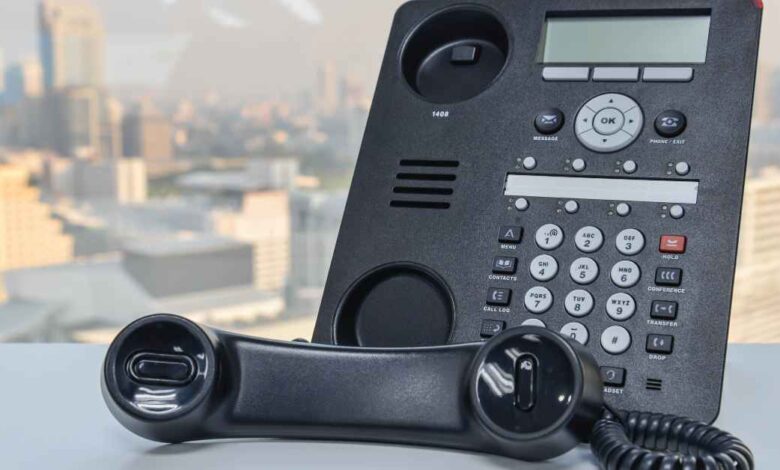What Environmental Impact Does Using VoIP Systems Have in a Home Setting?

In the era of advancing technology, Voice over Internet Protocol (VoIP) systems have become a staple for communication, especially in home settings. While the convenience and cost-effectiveness of VoIP are often highlighted, it’s crucial to explore the environmental impact associated with their usage. This article delves into the various aspects of how using VoIP systems at home can influence the environment.
Energy Consumption and Equipment Production
The deployment of VoIP systems involves the use of internet-connected devices, such as routers, modems, and VoIP phones. These devices, along with the servers that facilitate Home VoIP communication, contribute to energy consumption. However, compared to traditional telecommunication systems, VoIP generally has a lower overall environmental footprint. Additionally, advancements in energy-efficient hardware and data centers are further reducing the impact. To minimize the environmental consequences, users can opt for Energy Star-rated devices and consider the longevity and recyclability of their equipment.
Reduced Carbon Emissions from Commuting
One of the notable environmental benefits of VoIP systems in a home setting is the potential reduction in carbon emissions associated with commuting. Remote work, facilitated by VoIP communication tools, allows employees to work from home, cutting down on daily commutes. This translates to fewer vehicles on the road, subsequently lowering carbon emissions. Employers and employees embracing VoIP for remote collaboration contribute to a positive environmental impact by reducing the overall carbon footprint associated with daily commuting.
Paperless Communication and Document Sharing
VoIP systems often come with features that promote paperless communication and document sharing. Traditional communication methods, such as letters, memos, and faxes, contribute to deforestation and environmental degradation. VoIP encourages digital communication, reducing the need for physical documentation. By leveraging file-sharing capabilities and cloud storage, users can significantly cut down on paper usage, leading to a more sustainable and eco-friendly approach to communication.
Server Farms and Data Center Energy Consumption
While VoIP systems can be more energy-efficient on an individual level, the infrastructure supporting these systems, such as server farms and data centers, can have significant environmental implications. The energy consumption of these facilities, combined with the need for cooling systems, contributes to the carbon footprint. To mitigate this impact, companies providing VoIP services are increasingly adopting renewable energy sources for their data centers. Users can choose VoIP service providers with a commitment to sustainable practices to align their communication choices with environmentally conscious options.
Electronic Waste and Responsible Disposal
As with any electronic devices, VoIP equipment has a lifecycle that eventually leads to disposal. E-waste poses a significant environmental challenge, and VoIP users must be mindful of responsible disposal practices. Recycling programs, offered by manufacturers or local authorities, can help minimize the impact of electronic waste on the environment. Choosing VoIP equipment with recyclable materials and supporting e-waste recycling initiatives ensures that the environmental impact is mitigated even at the end of the product’s life cycle.
In conclusion, using VoIP systems in a home setting presents a blend of environmental challenges and opportunities. While energy consumption and server infrastructure can have environmental consequences, the overall impact of VoIP tends to be more eco-friendly compared to traditional telecommunication methods. Users can further enhance the positive environmental aspects by adopting energy-efficient devices, promoting paperless communication, selecting eco-friendly service providers, and ensuring responsible disposal practices for electronic equipment.
FAQs
- Are VoIP systems truly more energy-efficient than traditional phone systems?
- In general, yes. VoIP systems tend to be more energy-efficient, but the overall impact depends on factors such as the energy sources of data centers and the type of devices used.
- How can users reduce the environmental impact of VoIP at home?
- Users can choose energy-efficient devices, minimize paper usage through digital communication, and support VoIP service providers committed to sustainability.
- Do VoIP systems contribute to electronic waste?
- Yes, like any electronic devices, VoIP equipment can contribute to electronic waste. Responsible disposal and recycling are crucial to mitigate this impact.
- Can remote work powered by VoIP truly reduce carbon emissions?
- Yes, by eliminating or reducing the need for daily commuting, remote work facilitated by VoIP systems can contribute to a significant reduction in carbon emissions.
- How can users ensure their VoIP equipment is disposed of responsibly?
- Users can participate in manufacturer or local recycling programs and choose equipment made from recyclable materials to ensure responsible disposal of VoIP devices.



